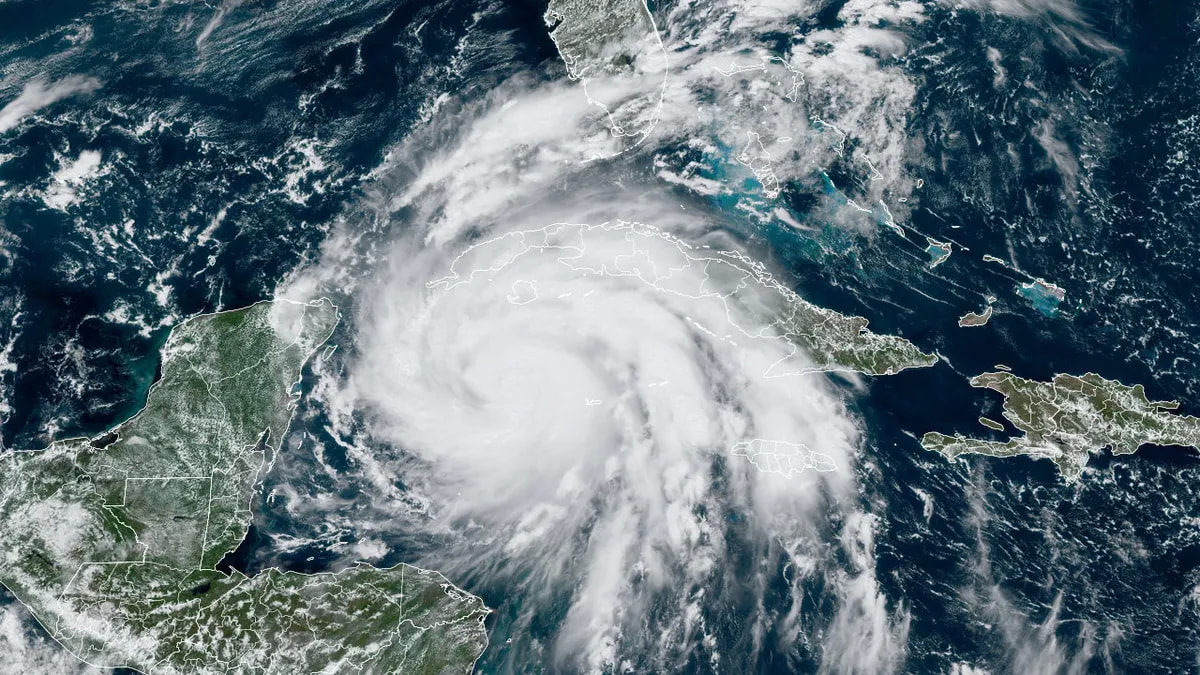|
DISCLAIMER: This post does not constitute legal advice and is presented for information, education, or entertainment purposes. It is opinion and commentary, and merely attempts to review the alcohol beverage laws and their interpretation to assist businesses (and consumers) in planning. If you have questions, then please speak to your legal professional or the appropriate regulation authority. TL;DR: HEY, IT'S HURRICANE SEASON. TIME TO GET MOVING.We’re in the thick of Hurricane season. And as Hurricane Ian approaches, we hope that everyone in the potential impact zone is working to get prepared. Being based in South Carolina, we are very concerned for many of our friends and clients as the storm approaches. While everyone’s list of things to do might vary, we just wanted to offer a few things to add to the checklist, particularly if you own an alcohol related business. And this list applies for this storm, as well as any others that might roll our way this hurricane season (until November 30th) - which, if history is any indication, is fairly likely. So, before you throw that hurricane party, make sure you take care of the things listed below. PREPAREDNESS TIPS 1. WATER. All of our producer clients in the range of a hurricane should consider filling kegs and/or empty fermenters with water in case of a shortage. Remember that generally, hurricanes can knock out electricity for some time and on top of that, water service may be unreliable due to flooding. Consider filling empty growlers or empty wine and spirits bottles with fresh water. Many breweries and/or retailers might be offering fresh water in kegs and/or growlers, but plan ahead. 2. DOCUMENTS/BACKUP YOUR DATA. Businesses should gather important hard copy documents and put them in a safe container, and either take them with you or at least put them in a secure location. If you can’t take the documents with you, then use plastic bags and duct tape. Put documents in at least gallon-size Ziploc bags. Duct tape all bags closed. Important documents can vary, but these would include licensing paperwork, insurance policies, tax returns, and contracts. Additionally, ensure that data is backed up and that any backup is performed in a timely manner and that any storage is done somewhere that is safe, secure, and dependable. 3. PHOTOGRAPHS. Before a storm, take photos of every room at the business (or home), every piece of electronics, and everything valuable, including documents. Upload the pictures to the cloud. Also make sure that your contacts are uploaded to the cloud. 4. INSURANCE. Review your business (or home) insurance policy to make sure you have coverage for any storm damage to the business. Remember, flood insurance isn’t covered under standard policies. Also look at wind and hail storm coverage. Certainly, if you aren’t insured, then the bad news is that a policy can't be procured in the time needed. However, having knowledge of what your policy says can be beneficial in preparing for what you need to do and how you will need to proceed on a claim after the storm. 5. STORAGE. In terms of storing product, it is best to store it in a place above the ground in the case of flooding. Certainly, this might not be practical for keg storage. However, if you have shelving and can afford to move product, ingredients, or other merchandise off of a low area, then that would be beneficial. 6. PROTECTION. You can’t move your equipment, but you can prepare your building for potential flooding if you are in a flood plain. Local authorities should have information regarding sand bags. You’ll probably already know what your drainage situation is, but look into generators to operate certain pumps. This would be helpful in keeping the lower levels of a facility clear of flood waters. Boarding up of windows and other vulnerable apertures can protect the building from any high-speed debris that is flying during the storm. 7. PLANNING. In terms of making a true hurricane plan, please consult the authorities and experts and what is recommend for the aftermath. But, please start now if you haven’t. There are many great resources out there. Please remember that a hurricane is not the only threat to assess. You also should be concerned about tornadoes, fire, flooding, and looting. Part of this plan would include following meteorologists in your area regarding the latest information and forecasting. We happen to have one in our family who currently serves the Upstate, but has also worked in the Grand Strand, Midlands, and Lowcountry, and so we would highly recommend Chrissy Kohler. 8. GOVERNMENT OFFICES. After a storm, it is anticipated that SC state government offices might be closed for a day or so, and possibly more. If you need anything quickly from DOR, DHEC, or other government offices that you usually work with, it is best to move quickly when you know a storm is on the way. 9. COMMUNICATIONS STRATEGY. It should be kept in mind that normal functions could be interrupted by a storm and any flooding occurring after. Establish backup communications and have a plan to restore them. Some options would include cell phones, radio, and walkie-talkies. Identify a communications contact within your business who can communicate any necessary information to employees. 10. EMPLOYEES. If you’re located in a coastal county in South Carolina, then please note that the government probably will ordered an evacuation if a hit looks to be fairly direct - or even strongly indirect. Not everyone will heed this warning, and many will stay in the area - with many businesses staying open before and after the storm. Many employees will heed the warning and leave the impacted areas. Many jobs on the coast revolve around food and beverage, which means those jobs (for the most part) are going to be non-union private sector jobs. That means that employers have enormous flexibility when dealing with employees during a storm. Employees wishing to evacuate can be disciplined by employers for failing to show for work should the business stay open and the employer directs the employee to come to work. Of course, the likelihood of that for evacuating is low, often because it isn’t a good look for employers. But, this is more reason to communicate well with employees before and after the storm. Stay safe, everyone. BROOK BRISTOWBrook Bristow is a South Carolina-based lawyer at Bristow Beverage Law, who primarily counsels companies in the alcohol industry on business and employment laws, as well as on compliance, licensing, and intellectual property. You may reach him directly at [email protected]
1 Comment
|
AuthorBrook Bristow is a South Carolina-based lawyer at Bristow Beverage Law, who primarily counsels companies in the alcohol industry on business and employment laws, as well as on compliance, licensing, & intellectual property. You may reach him directly at: [email protected] Archives
April 2024
Categories |




 RSS Feed
RSS Feed